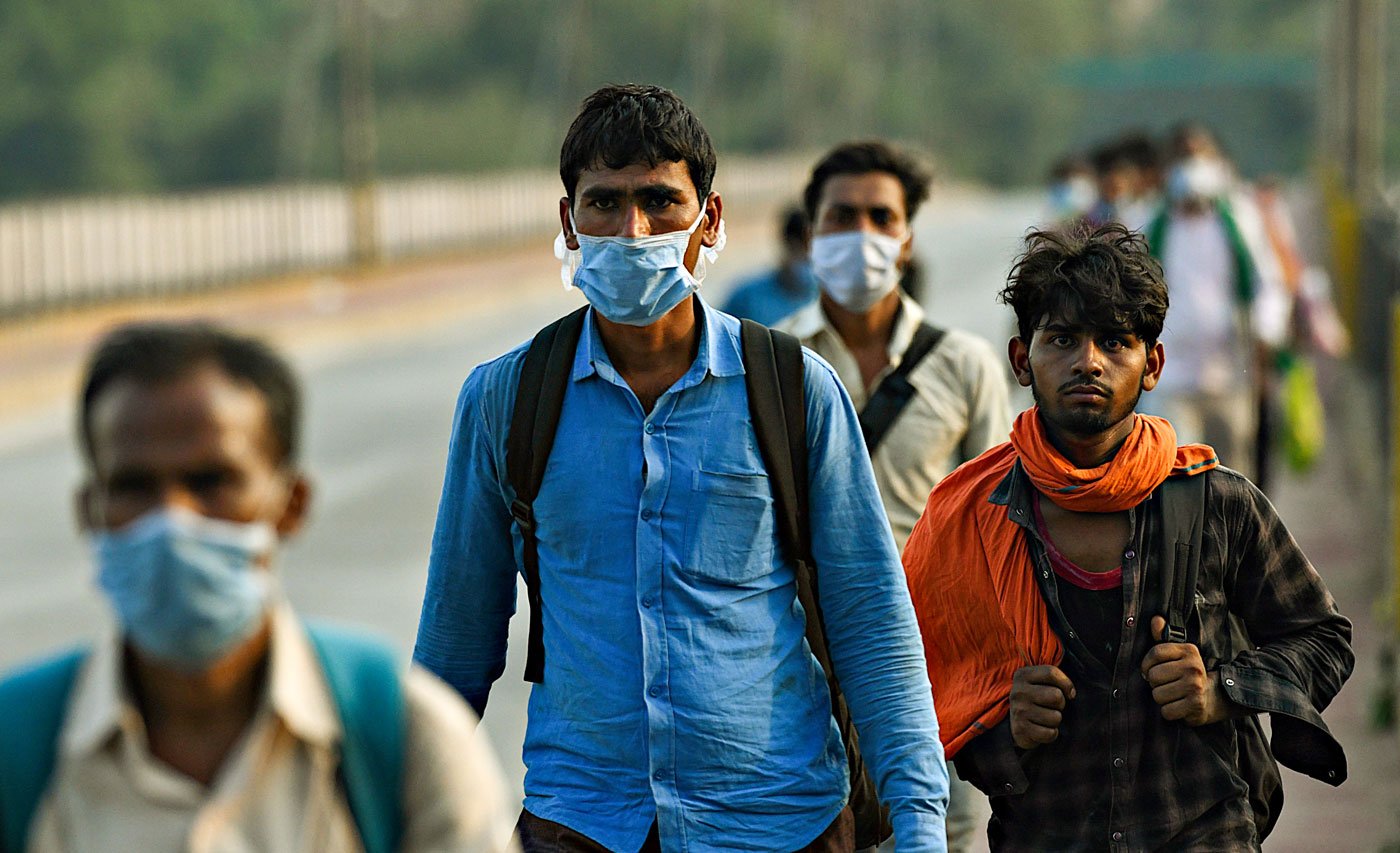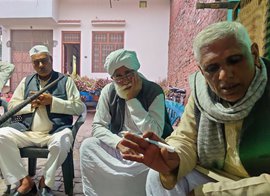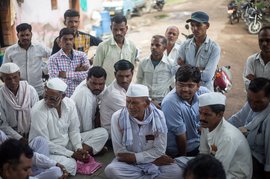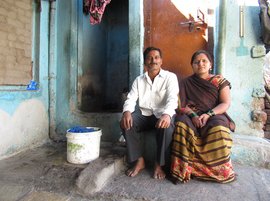Recently, 16 workers from Madhya Pradesh were killed under a train in their sleep in Aurangabad, Maharashtra. What does it say about us that our first reaction is to question why the dead workers were sleeping on the tracks, and not those who pushed them to walk home?
How many English publications even bothered to give names of the workers crushed under the train? They just had to go faceless and nameless. That is our attitude towards the poor. If it had been a plane crash, you would have helplines giving information. Even if there had been 300 killed in the crash, their names would appear in the newspapers. But 16 poor guys from Madhya Pradesh, eight of them Gond Adivasis, who gives a shit? They were walking along those railway lines as a guide to home – to a station from where they hoped to get a train home. They slept on the tracks because they were exhausted and probably believed there were no trains plying on those lines.
With a workforce as huge as the one in India, what do you think of the communication of governments to workers?
We gave a nation of 1.3 billion human beings four hours to shut down their lives. M.G. Devasahayam, one of our legendary civil servants, had said, "A small infantry brigade being pushed into a major action is given more than four hours notice." Whether or not we agree with the migrant workers, the rationale in leaving was absolutely sound. They know – and every hour we are proving – how untrustworthy, inconsiderate and cruel their governments, factory owners and middle-class employers like us are. And we are proving that with laws to restrict their freedom of movement.
You created panic. You sent the country into complete chaos with millions on the highway. We could have easily converted the marriage halls, schools and colleges, and community centres that were shut down into shelter homes for migrants and the homeless. We declared star hotels into quarantine centres for people returning from abroad.
When we arrange trains for the migrants, we charge them full fare. Then we put in AC trains and Rajdhani class fares of Rs. 4,500. To make it worse, you say the tickets can be booked online, assuming they all have smartphones. Some of them buy those tickets.
But in Karnataka, they cancel the trains because the chief minister meets the builders, who say the slaves are escaping. What you are witnessing is the quelling of an anticipated slave rebellion.
We have always had one standard for the poor, and one for others. Even though, when you list essential services, you are finding out that it is only the poor people who are essential, apart from doctors. Many of the nurses are not well-off. Besides them, there are sanitation workers, ASHA workers,
aanganwadi
workers, electricity workers, power sector workers, and factory workers. Suddenly you are finding how inessential the elite are to this country.
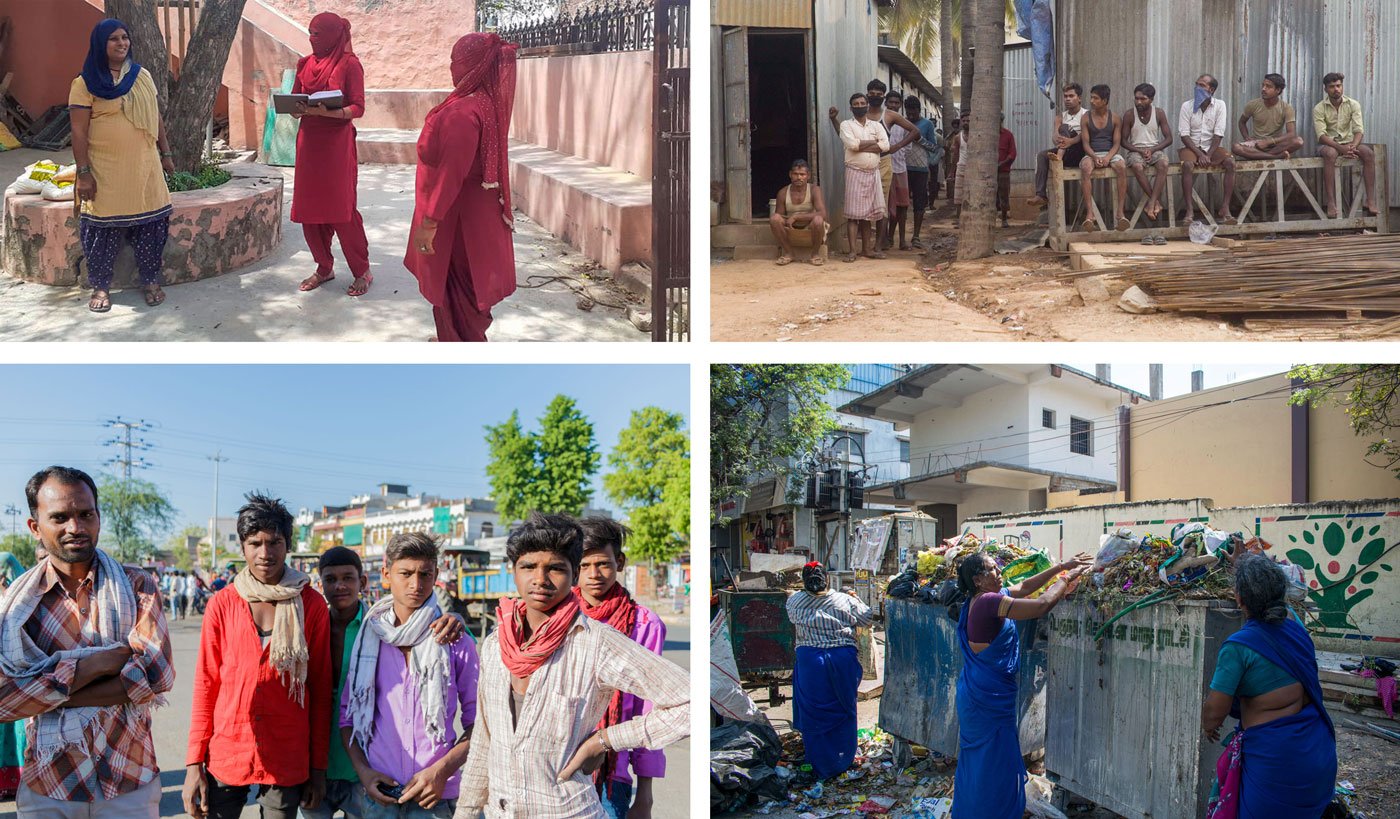
Migration has happened for decades. And their condition was terrible even before the lockdown. How do you see the way we treat our migrant workers in general?
There are many kinds of migrants. But you have to understand the class distinctions of migration. I was born in Chennai. I did my higher education in Delhi, where I lived for four years. I then migrated to Mumbai, and I have been living here for 36 years. Each shift I made benefited me because I come from a particular class and caste. I have social capital and networks.
There are long-term migrants, those who leave from A to B and remain permanently in B.
Then there are seasonal migrants. For example, the sugarcane workers in Maharashtra who migrate to Karnataka for five months and very significantly vice versa — work there and go back to their villages. There are migrants in Kalahandi who go to Raipur during tourist season and pull rickshaws. There are those who go from Koraput in Odisha to the brick kilns of Vizianagaram in Andhra Pradesh for some months.
There are other groups, too — but the people we should be most concerned with are what some of us call 'footloose' migrant workers. The footloose migrant has no clear idea of a final destination. They will come with a contractor and work at a construction site in Mumbai for 90 days. At the end of that period, they have nothing. The contractor will then put them in touch with someone in some other part of Maharashtra, and bus them there. And that goes on indefinitely. That is a wretched life with total, unending insecurity. They are in millions.
When did the state of migrant workers begin to worsen?
Migrations have taken place for more than a century. But they have exploded in the past 28 years. The 2011 Census shows us that between 2001 and 2011, India saw its highest migrant flows — in our independent history.
The 2011 Census noted that for the first time since 1921, the number of people urban India added to its population was higher than the number of people rural India added to its population. The growth of rate of population is much smaller in urban areas, yet you have more people added to urban India’s population.
Go back and search for a panel discussion or interview with experts on television fully dedicated to these facts of the 2011 Census. How many discussed the migrant labourers and the intensity with which migrations happened from rural to urban, rural to rural, and so on?
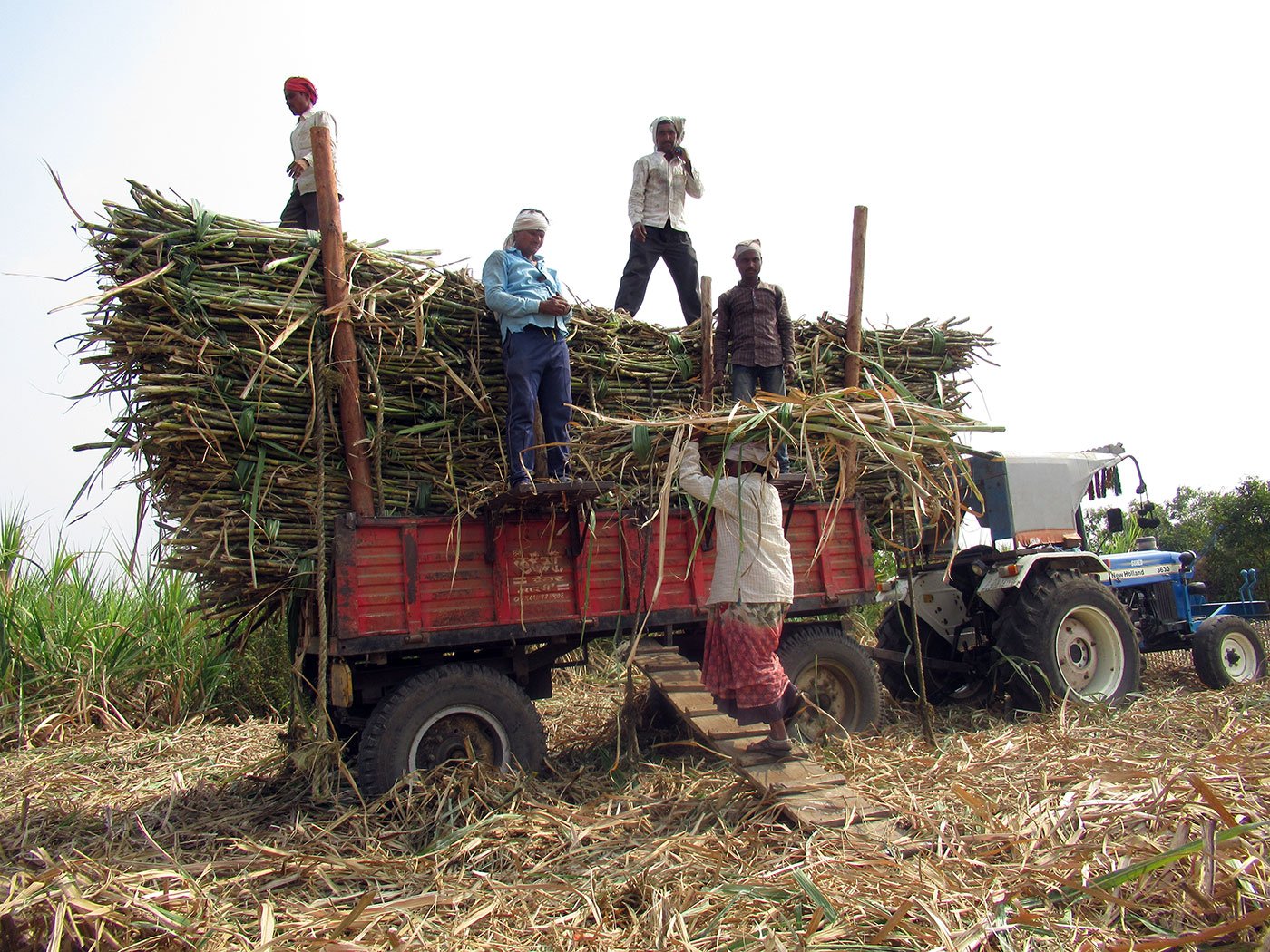
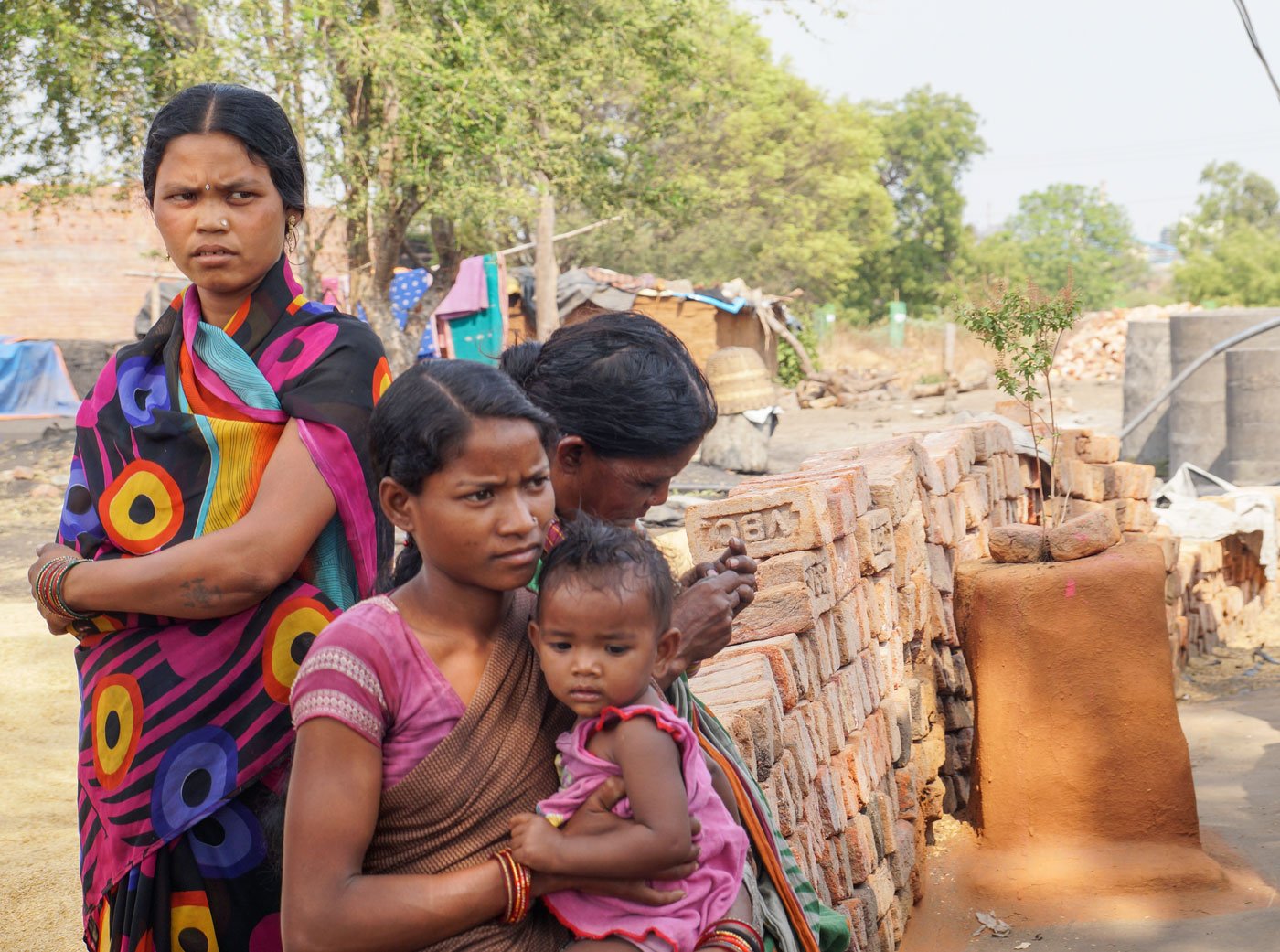
Any discussion around migration is incomplete without rural distress, which is at the root of migration, right?
We smashed agriculture, and millions of livelihoods collapsed. Every other livelihood in the countryside has been savaged as well. Handlooms and handicrafts together are the biggest employers in the country after agriculture. Boatmen, fishermen, toddy tappers, toy makers, weavers, dyers — one after the other, they are going under like ninepins. What option did they have?
We are wondering if the migrant workers will come back to cities. Why did they come here in the first place?
I do believe a substantial number of migrant workers will come back to the cities. It will take a long time, perhaps. But we have long ago destroyed the options they had in villages, ensuring our army of cheap labour.
How do you view the proposed relaxations of labour laws in several states?
First, it is an undermining of the Constitution and existing laws by ordinance. Second, it is an issuance of a bonded labour proclamation by ordinance. Third, it actually sets back the gold standard on working hours by 100 years. The most basic thing is every convention on labour in the world has respected the eight-hour work day.
Look at the Gujarat notification. It says that no overtime will be paid to the workers. The Rajasthan government provides for overtime pay for extra hours, but with a limit of 24 hours a week. The workers will work 12 hours a day for six days straight.
All of these things have been done quoting exemptions and exceptions in the Factories Act. It says the maximum number of hours a worker can be asked to work — including overtime — is 60 hours. At 12 hours a day, these are coming to 72.
More importantly, the workers have no say whether they want to do the extra hours or not. There is an assumption that productivity goes up with longer working hours. But it goes against many studies done in history. A lot of factories in the past century adopted the 8-hour day because their surveys showed them that productivity dropped off strongly in the extra-long hours because of fatigue and exhaustion.
Regardless of that, it is an attack on basic human rights. It is an enslavement of labour. The states are essentially acting as a contractor,
dalal
procuring bonded labour for the corporations. Be sure this will affect the weakest sections — Dalits, Adivasis and women — the most.
Ninety-three percent of the workers in India have no rights that they are able to enforce anyway because they work in the informal sector. You are trying to say, "Let us destroy the rights of the remaining seven percent as well." The states are arguing that investment will come with the change in labour laws. But investment comes to places where there is also better infrastructure, better conditions and generally a stable society. If Uttar Pradesh had been any of that, it would not be the state from where the largest number of workers migrate across India.
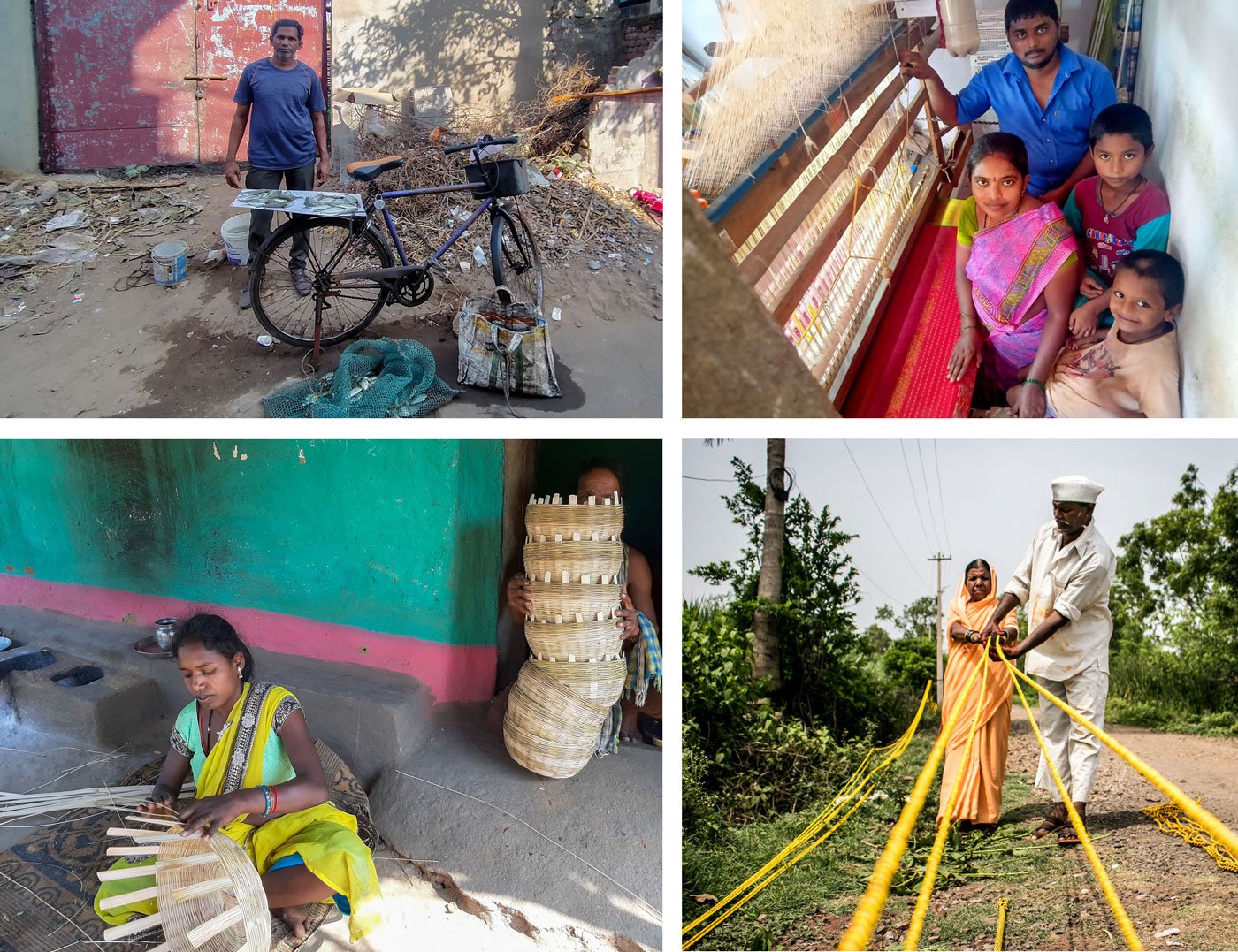
What could be the consequences of this move?
Uttar Pradesh and Madhya Pradesh have suspended all labour laws for three years, barring three or four laws that they cannot get around because of the constitutional and legal complexities. You are saying it doesn't matter how miserable the conditions are, the labourers have to work. You are dehumanising people and are saying that they are not entitled to the rights of ventilation, toilets and breaks. This is an ordinance by chief ministers and there is no legislative process behind this.
What do we need to do going forward?
You absolutely need to improve the conditions of labour in the country. The pandemic affects them the way it does because of the gigantic inequalities in our society. What we are doing is a violation of very many international labour conventions that we are party to.
B.R. Ambedkar saw this clearly. He understood that it wasn’t just about government that we have to talk. We have to talk about workers being at the mercy of business. The states are suspending laws that he helped bring in, that he laid the grounds for.
We have a labour department in state governments. What should its role be?
The role of the labour department in the state should be to protect the rights of the labourers. But you have a union labour minister who is also appealing to the workers to listen to the corporations. You want something to change, you have to change your social contract. If you cannot address one of the most unequal societies on the planet, you can’t do anything about it. It will get worse — and very rapidly.
Most of the workers going back home are young, and angry. Are we sitting on a volcano?
The volcano is exploding. We are trying to not look at it. See the hypocrisy of the governments, media, factory owners and us as a society.
Till 26 March, we never knew about the migrant labourer. Suddenly, we see millions of them in the streets. And we feel the pinch because we have lost our services. We didn’t give a damn until March 26. We didn't think of them as human beings with equal rights. There is an old saying: When the poor become literate, the rich lose their palanquin bearers. Suddenly, we lost our palanquin bearers.
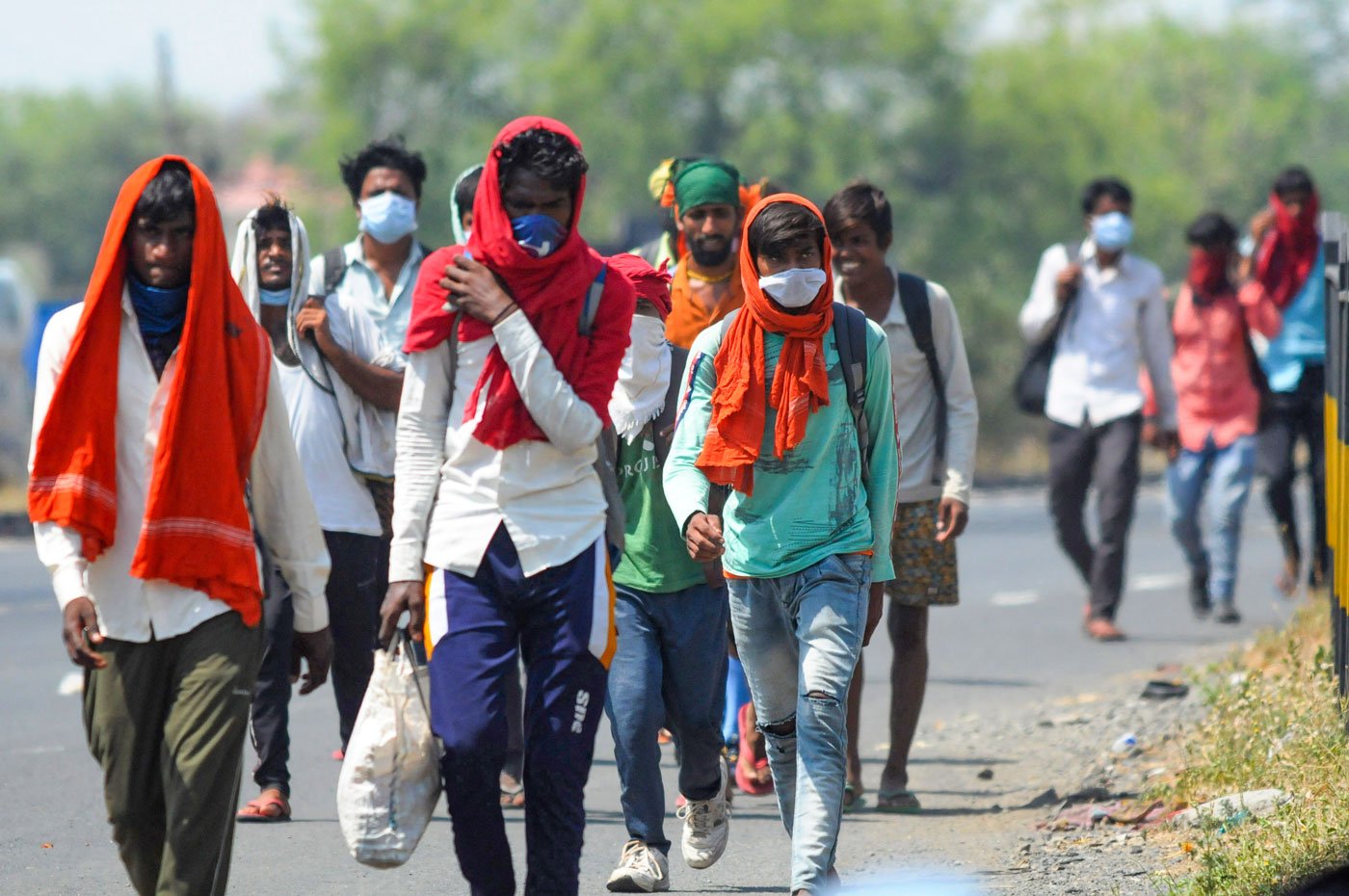
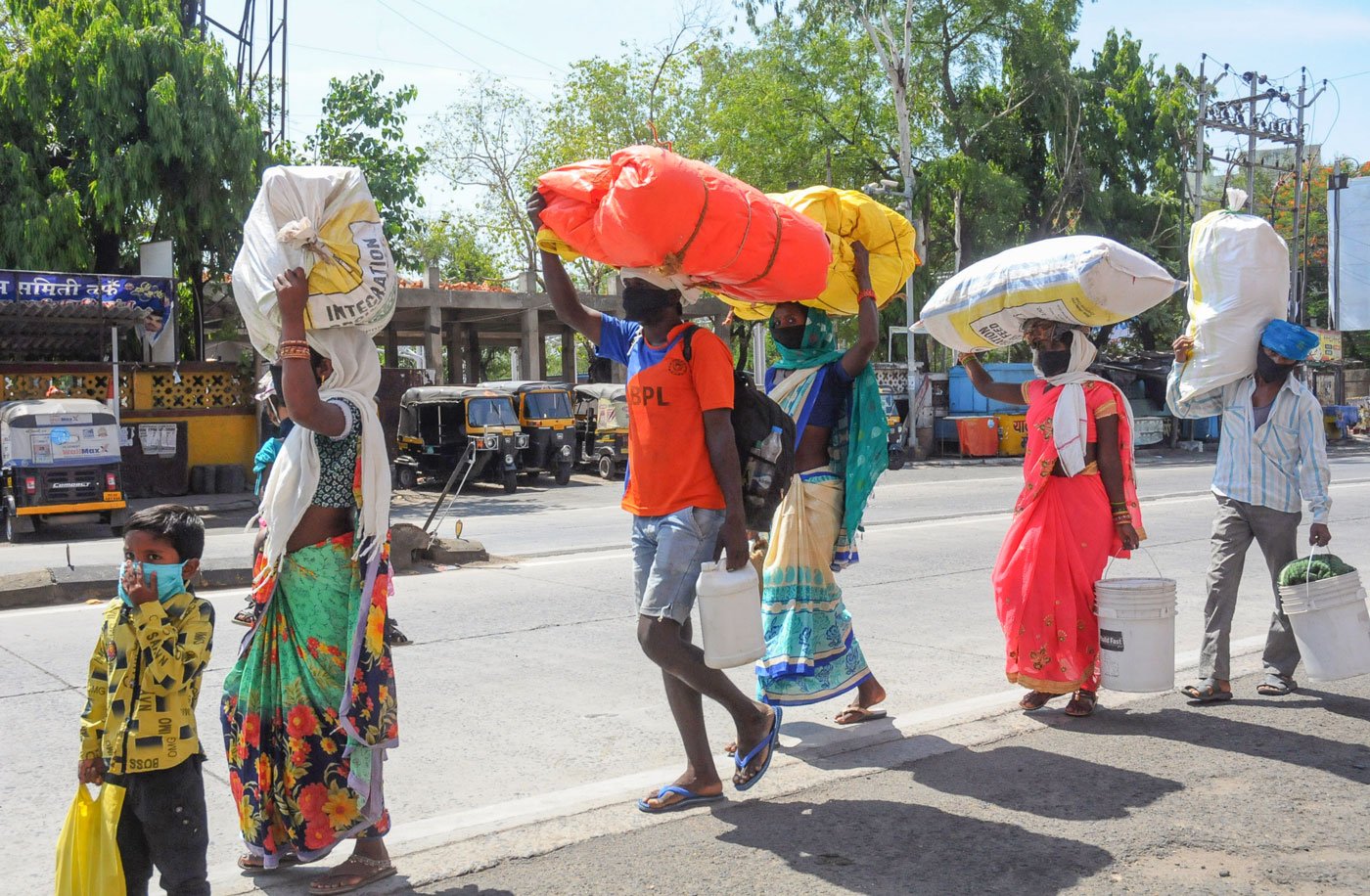
How do the migrations particularly affect women and children?
It is particularly devastating for women and children. Wherever there is contraction of nutrition, women and girl children are the biggest sufferers. And they are incredibly more vulnerable in health terms. There are ways young girls suffer that rarely are thought about, let alone mentioned. Millions of girls in schools across the country are entitled to free sanitary napkins — suddenly the schools are shut, no alternatives provided for. So millions are returning to unhygienic alternatives
What about the difficulties of migrant workers walking back home?
Migrant workers have often walked long distances. For example, the migrant workers walk back to south Rajasthan from their factory or middle-class employers in Gujarat. But they did that in different circumstances.
They walk 40 kilometres, stop at a
dhaba
or a tea stall, work there, and get a meal in return. In the morning, they will leave. Next big bus station — they do the same. That is how they earn their way back home. With all of those places closed, they are exposed to dehydration and hunger, diarrhoea and other diseases.
What should we do in the future to improve their condition?
A complete delinking and breaking with the path of development we have chosen, and a massive attack on inequality. The sufferings of the migrant workers arise from their unequal situation.
You cannot do it without realising the importance of "justice for all: Social, economic, and political…" Embedded in your Constitution. And it is not an accident that social and economic precede political. I think there was a clear sense of priority in those people who wrote it. Your Constitution tells you the way.
The Indian elite and government really think that we can go back to business as usual, and that belief is going to lead to incredible oppression, suppression and violence.
Cover photo: Satyaprakash Pandey
This interview was published in the Firstpost on May 13, 2020.
